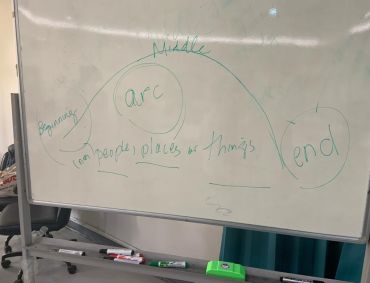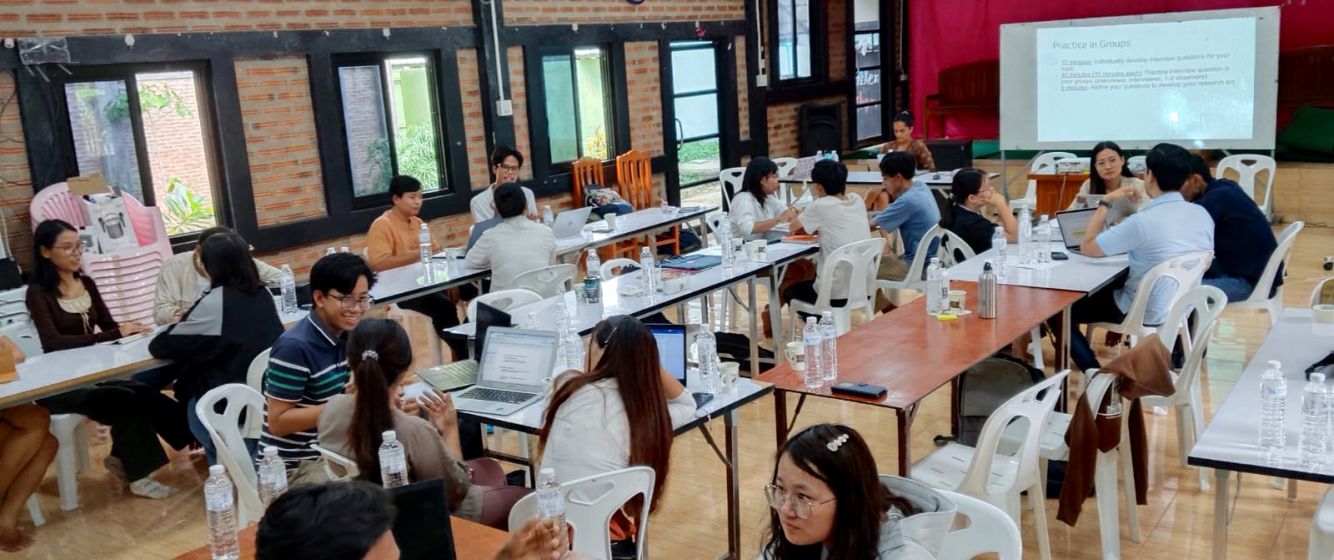
Students in groups practicing interviewing techniques at the Mae Sot bachelor’s thesis workshop.
Credit: Yi Li, Mae Sot, Thailand (June 2025)
Research as Storytelling: Bachelor’s Thesis Support Workshop in Mae Sot, Thailand
In early June, HAB co-sponsored a storytelling as research workshop in Mae Sot, Thailand, to support CDM students and teachers in their research processes for their bachelor's theses. HAB partners and workshop organisers Tharaphi Than (Northern Illinois University, USA), Jyothi Thrivikraman (Leiden University College, The Hague), Surajit Sarkar (India), and Yi Li (Aberystwyth University, UK) reflect on the workshop and share samples from the students' research projects.
Students were left in limbo when the Diversity and Inclusion Scholarship Program (DISP) of the United States Agency of International Development (USAID) shuttered their program at the start of the year. These students who are part of the civil disobedience movement were very close to finishing up their bachelor’s theses, yet could not continue. Already dealing with the fallout of the 2021 coup and resulting civil war, these same students’ education was disrupted once again.
Given our work with CDM educators and our connections to many of these students and teachers as part of the "Our Stories Matter!" place-based education toolkit, we decided to find a way to support students in completing their theses. In early June, the four of us went to Mae Sot, Thailand to host a 3-day workshop on bringing oral histories and storytelling into the research pedagogy, especially the use of situated personal experiences and building a repertoire of place-based pedagogies.
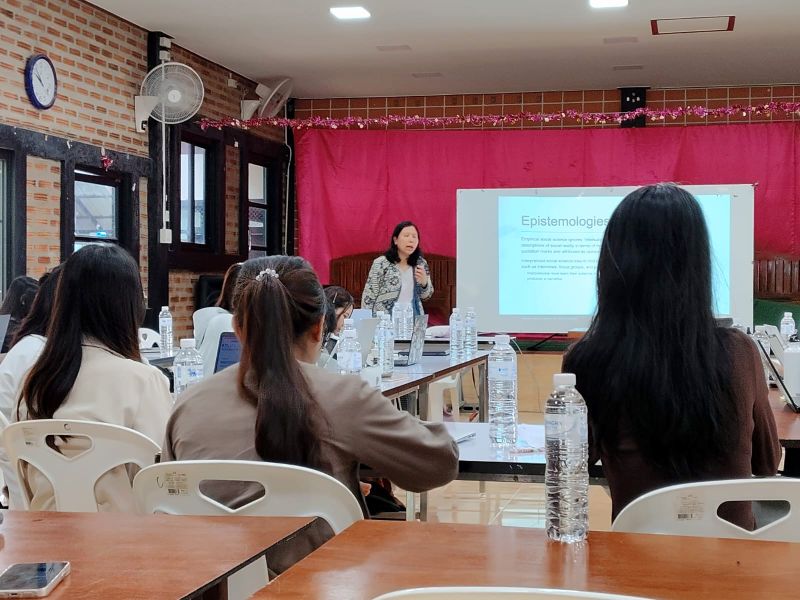
Tharaphi (Northern Illinois University, USA) discussing the different forms of knowledge and how certain methods are more suited to recording them.
Yi Li, Mae Sot, Thailand (June 2025)
Over these 3 days, we worked with the 18 students to narrow down their research question, think about their own positionality, search the literature and select methods. The last day was devoted to them presenting their final project topics after having conducted sample interviews. The questioning by students and CDM teachers was rigorous and supportive.
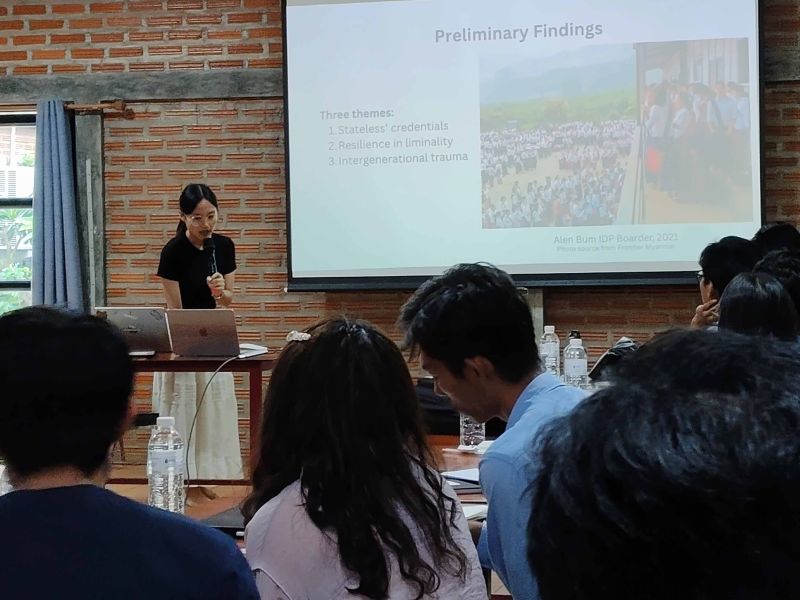
A workshop participant sharing the preliminary findings of their research topic.
Yi Li, Mae Sot, Thailand (June 2025)
We started the session by exploring what makes research a narrative. This led to students going from a broad research topic towards their research question. For some this proved to be a challenge as they wanted to research so many things. Many of their research topics were deeply personal resulting from their own experiences of migration leading to conversations of positionality. We focused on two types of methods: interviewing and photovoice, methods that drew upon their experience. A good bit of time was spent in practicing these methods. The entire research process was linked to the story arc focusing on a good beginning (introduction to the research question), middle (literature review, methods and results) and the end (discussion and conclusions).
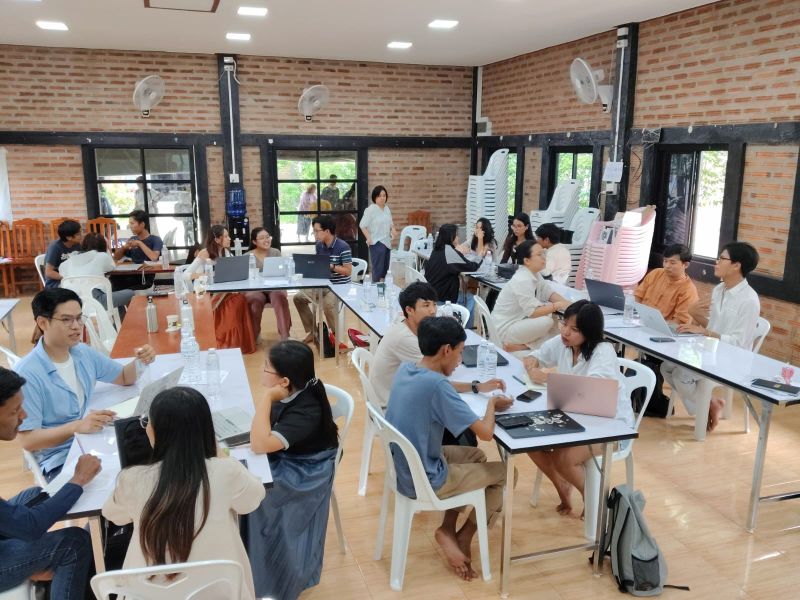
Workshop participants in groups practising techniques on developing and conducting interviews with each other.
Yi Li, Mae Sot, Thailand (June 2025)
Here is a sample of their research projects drawing upon the words of the students themselves:
- My research topic is about exploring the connection between ethnoterritorial federalism and Myanmar, where federal units are structured around ethnic or territorial identities. This topic matters because we are the people who share a common destiny, and the future of Myanmar depends on building a political system that respects the voices and rights of all communities. For too long, centralised governance has marginalised ethnic minorities and deepened internal conflict.
- My research topic is about exploring the experiences and responses of young women in Myanmar who are facing forced displacement as a result of the 2024 military conscription law. I aim to understand how this law has impacted their lives, the challenges they face during displacement, and the strategies they employ to cope with or resist these conditions. Like many others who resist the military, I had to pause my formal education and leave my home due to the coup. My own experience of displacement, fear, and uncertainty deeply connects me to the women I aim to study. I am inspired by the strength of those young women who continue to resist. Their courage motivates me to document their voices and their struggles. This research is not only important to me as a study, but also personally. It is part of my story too.
- My research question is “What are the facilitators and barriers for patients with NCDs (noncommunicable diseases) in Myanmar following the 2021 military coup? I am a student from a community health background and enthusiastic about exploring challenges of NCDs patients.
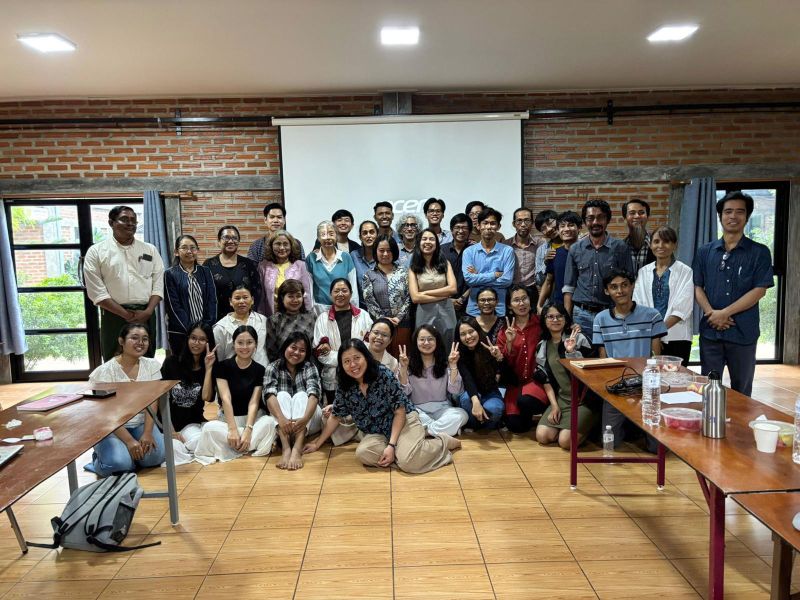
Workshop organisers and the bachelor's student participants
Mae Tao Clinic, Mae Sot, Thailand (June 2025)
With more room, we would share all the inspiring topics. We wish the students the best as they complete their undergraduate studies. These 18 students who are seeking to understand how to live together in a diverse multi-ethnic and multi-lingual state are inspirations. The seeking of answers to these questions not only have relevance in Myanmar but also elsewhere.



